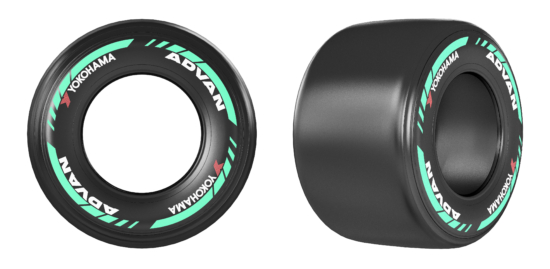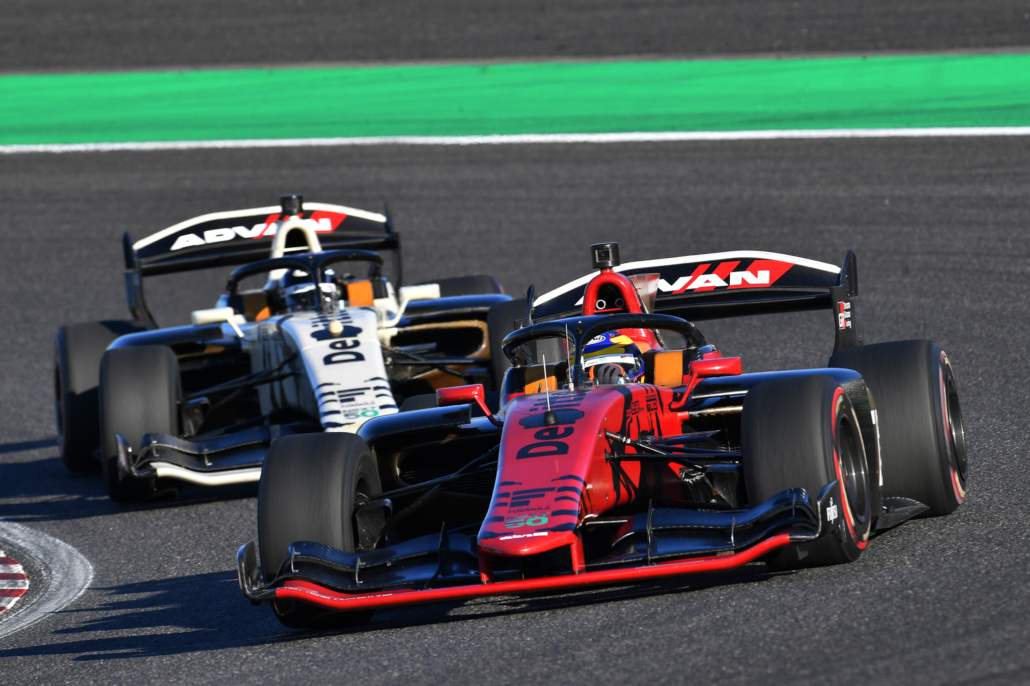Yokohama to supply more sustainable racing tyres to 2023 Super Formula races
 Yokohama Advan racing tyres (dry use) to be supplied to Super Formula races from 2023 (Photo: Yokohama)
Yokohama Advan racing tyres (dry use) to be supplied to Super Formula races from 2023 (Photo: Yokohama)
Yokohama will supply Advan racing tyres with 33 per cent sustainable material content as the control tyre for the Japanese Super Formula Championship from the 2023 season. The tyre supplier said work on the tyre for dry conditions is complete, while wet tyre development continues with a view to providing both to the series from next year. Yokohama says the tyres have demonstrated performance equivalent to that of the standard tyres used in Super Formula 2022 races.
The dry tyre uses natural rubber and various naturally derived compounding agents. These include oil produced from oil palm nuts and orange peel. It also uses recycled iron, rubber recycled from waste tyres, and synthetic rubber produced using the mass balance method. This allows a commercial product to be labelled as a biomass-derived product based on the volume of biomass-derived raw materials used during the process of turning raw materials into final products and the distribution process. Commercial products labelled as biomass-derived raw products therefore are regarded as fully biomass-derived regardless of their actual volume of biomass-derived materials.
As a result, sustainable materials account for about 33 per cent of all materials used in the tyres.
Super Formula 2023 will feature new formula cars (Photo: Yokohama)
Super Formula Next 50 tyres
Yokohama will also supply racing tyres made from sustainable materials to support the Super Formula Next 50 (SF Next 50) project announced in October 2021 by Japan Race Promotion, the operator of the Super Formula series. Promoted with the cooperation of various companies allied by the common goal of creating a sustainable motorsports industry, the promotion of SDGs and carbon neutrality.
Yokohama tested its tyres as part of the trial runs for next-generation formula cars that were held before and after each Super Formula race during the 2022 season. The company said it will continue its efforts to develop tyres with higher sustainable material content in 2023 and coming years. It aims to increase the ratio of renewable and recyclable materials used by the company to more than 30 per cent of total materials used by 2030, raising that ratio to 100 per cent in 2050.



Comments